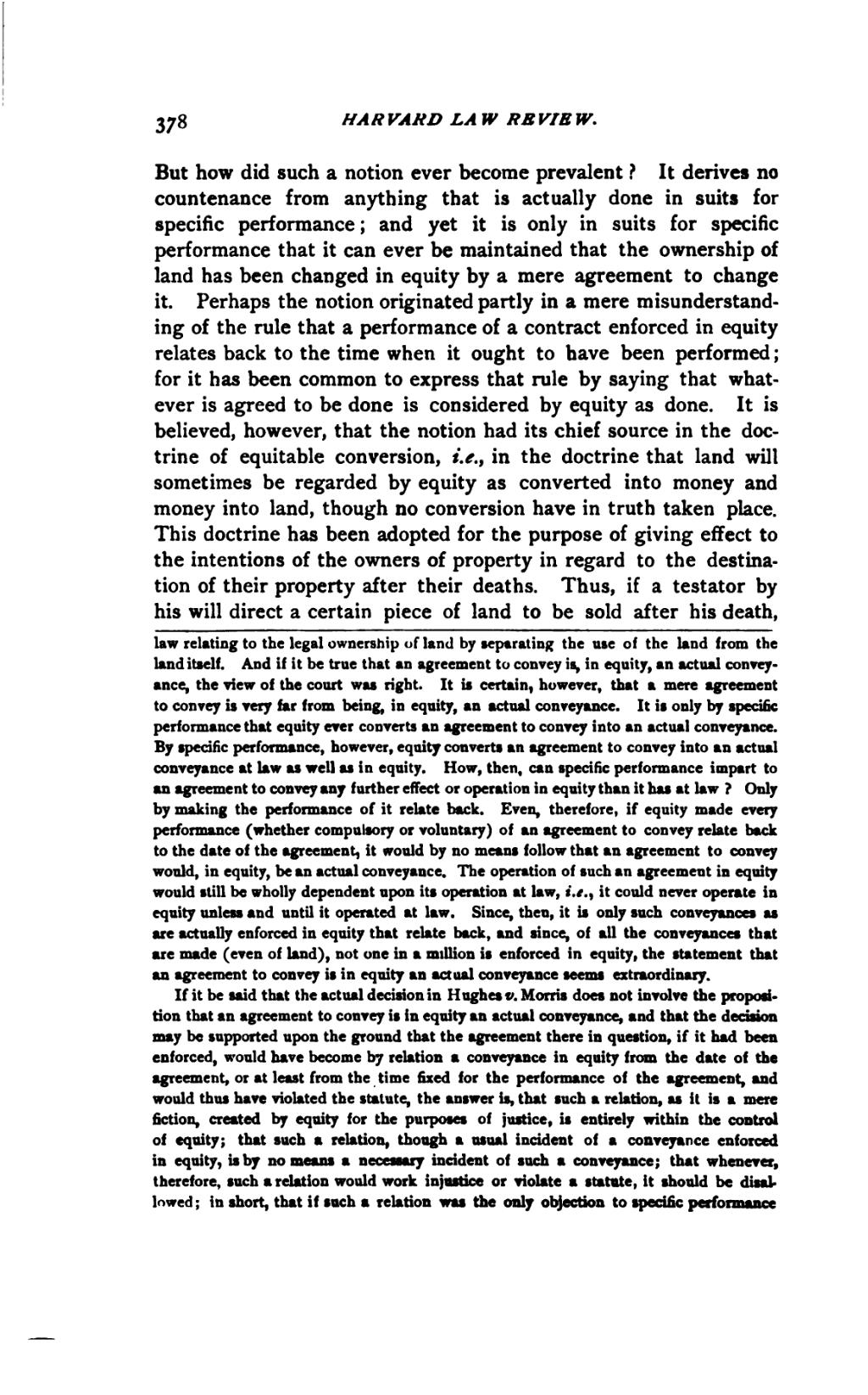But how did such a notion ever become prevalent? It derives no countenance from anything that is actually done in suits for specific performance; and yet it is only in suits for specific performance that it can ever be maintained that the ownership of land has been changed in equity by a mere agreement to change it. Perhaps the notion originated partly in a mere misunderstanding of the rule that a performance of a contract enforced in equity relates back to the time when it ought to have been performed; for it has been common to express that rule by saying that whatever is agreed to be done is considered by equity as done. It is believed, however, that the notion had its chief source in the doctrine of equitable conversion, i.e., in the doctrine that land will sometimes be regarded by equity as converted into money and money into land, though no conversion have in truth taken place. This doctrine has been adopted for the purpose of giving effect to the intentions of the owners of property in regard to the destination of their property after their deaths. Thus, if a testator by his will direct a certain piece of land to be sold after his death,
law relating to the legal ownership of land by separating the use of the land from the land itself. And if it be true that an agreement to convey is, in equity, an actual conveyance, the view of the court was right. It is certain, however, that a mere agreement to convey is very far from being, in equity, an actual conveyance. It is only by specific performance that equity ever converts an agreement to convey into an actual conveyance. By specific performance, however, equity converts an agreement to convey into an actual conveyance at law as well as in equity. How, then, can specific performance impart to an agreement to convey any further effect or operation in equity than it has at law? Only by making the performance of it relate back. Even, therefore, if equity made every performance (whether compulsory or voluntary) of an agreement to convey relate back to the date of the agreement, it would by no means follow that an agreement to convey would, in equity, be an actual conveyance. The operation of such an agreement in equity would still be wholly dependent upon its operation at law, i.e., it could never operate in equity unless and until it operated at law. Since, then, it is only such conveyances as are actually enforced in equity that relate back, and since, of all the conveyances that are made (even of land), not one in a million is enforced in equity, the statement that an agreement to convey is in equity an actual conveyance seems extraordinary.If it be said that the actual decision in Hughes v. Morris does not involve the proposition that an agreement to convey is in equity an actual conveyance, and that the decision may be supported upon the ground that the agreement there in question, if it had been enforced, would have become by relation a conveyance in equity from the date of the agreement, or at least from the time fixed for the performance of the agreement, and would thus have violated the statute, the answer is, that such a relation, as it is a mere fiction, created by equity for the purposes of justice, is entirely within the control of equity; that such a relation, though a usual incident of a conveyance enforced in equity, is by no means a necessary incident of such a conveyance; that whenever, therefore, such a relation would work injustice or violate a statute, it should be disallowed; in short, that if such a relation was the only objection to specific performance
